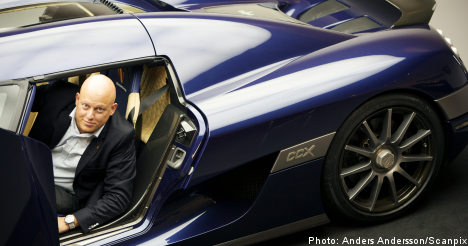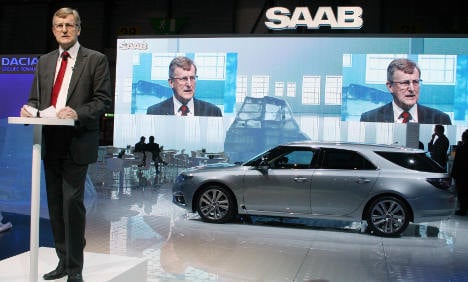Jöran Hägglund, state secretary at Sweden’s industry ministry, met with Koenigsegg Group this week to discuss the proposed deal.
“We have received a report and have encouraged them, to the extent possible, to be as open and accessible as possible in replying to this type of question,” Hägglund told news agency TT.
Rumours have abounded since late last week that one of the owners of the Koenigsegg Group has sold his shares. American board member Mark Bishop, who owns 22 percent of the company, is rumoured to have offloaded the shares just as Koenigsegg enters into late stage negotiations over the proposed purchase of Saab Automobile.
But Koenigsegg Group is so far refusing to discuss developments within the firm.
“I am unable to comment on that,” said Halldora von Konigsegg, CEO of the Koenigsegg Group consortium and wife of Koenigsegg Automotive’s CEO and founder Christian von Koenigsegg.
Jöran Hägglund, the government’s chief negotiator in the Saab deal, has been criticised by trade union leaders for causing unnecessary concern by speaking openly about his understanding that changes were afoot within the Koenigsegg Group. But Hägglund has defended his statement.
“The tax payers are the ones guaranteeing the loan and there is a major public interest regarding the people and groups involved,” he said.
Halldora von Koenigsegg said the Koenigsegg Group was reaching the closing stages of its negotiations with the Swedish government.
“Our ambition is for it to be ready as soon has possible, so we hope to have reached a conclusion within the next few weeks. But there are a lot of things under negotiation that will have to fall into place,” she said.




 Please whitelist us to continue reading.
Please whitelist us to continue reading.
Member comments